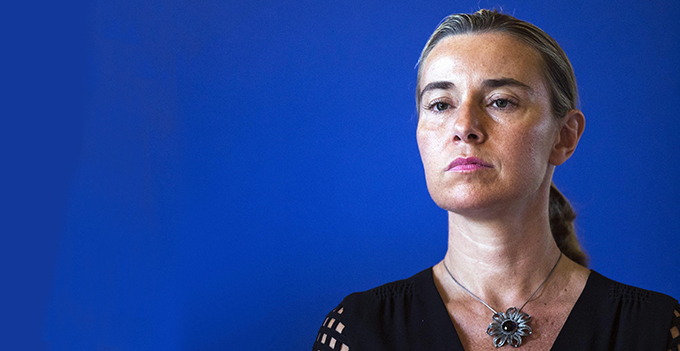Yes to Jean-Claude Juncker as European Commission next President, only with “a document stating clearly the direction Europe is going to take.” This is the (weak) position on which PES leaders reached an agreement today, during the meeting before the two-day European Council, held in Ypres and Brussels. Explained by the Italian Prime Minister Matteo Renzi, the position “was accepted by PES, now we have to convince the others,” said the PM leaving the meeting.
As Renzi has always said, actions come before names, and the first thing is understanding which kind of answers will be given to Italian requests for increased flexibility in the interpretation of the Stability and Growth Pact. The last draft of the next Commission’s program is making the rounds, and the use of margins has turned to be “good” (from “full”): this is “a positive step forward” commented Renzi. “There’s still something to refine,” he said, “we’ll see what Van Rompuy is bringing us tonight.”
The Italian fight, said Renzi before entering the summit, is not ‘just Italian’, because Italy “has nothing to get ‘against’ other members or ‘different from’ other members.” It is just “a bet” we should make “all together” on growth: “If we love Europe, then we need to act, to pay attention to growth and to fight unemployment more than we’ve ever done before.”
The way for growth passes through increased flexibility: “I think this issue received the widest consensus today,” explained the temporary President of the European Parliament, Gianni Pittella. “It will be up to the Commission and the Parliament,” he added, “to turn this principle into measures targeted to guarantee higher operativity to national governments in investing in strategic sectors, in SMEs development, in human capital and growth.”
“The ‘more flexibility equals more growth’ idea is key, and I think the debate we’ve having this days is encouraging,” agreed the Socialist Head of Group at the European Parliament, Martin Schulz. Cameron’s opposition – the British PM has said he’s going to fight against Jean-Claude Juncker’s candidacy as European Commission next President – is commented like this by Schulz: “The European Union is stronger with the United Kingdom: still, the other way round too applies. It is up to the British government to decide whether to be involved in the European decision making or to stay at the sidelines only to oppose an individual.”
The main points of the agenda are “growth and employment” said François Hollande, French President, who added: “If we want commitments to be respected, then it is legitimate and necessary for more flexibility to be allowed.” Dealing with appointments, Hollande said “I thinks there’s great consensus around Juncker, and it is time for the union to decide.” Anyway, “programs first.”
Even the Danish Prime Minister, Helle Thoring Schmidt, spoke up about appointments (some say she’s the next European Council President): “I am not a candidate,” she reassured, “I am the Danish Prime Minister, Denmark is a wonderful country and I am focused on my work now.”













